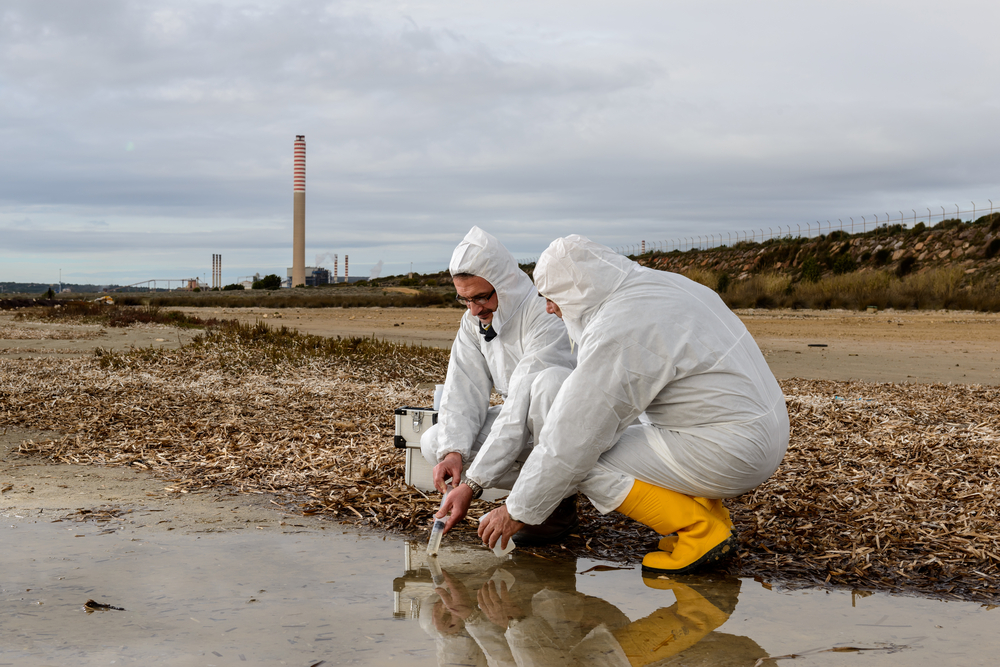Risk managers take note: Environmental enforcement, particularly criminal enforcement, is expected to rise in the coming months.
In their remarks at the American Bar Association’s annual National Environmental Enforcement Conference, Chief of the Department of Justice (DOJ) Environmental Crimes Section Deborah Harris and Assistant Attorney General Todd Kim, head of the DOJ Environment and Natural Resource Division (ENRD), clearly stated, “Companies and individuals should expect more robust investigations that draw on the expertise and jurisdiction of various federal agencies, while prosecutions will be driven by enhanced DOJ criminal enforcement policies,” reports a National Law Review article by Hunton Andrews Kurth.
In past years, the previous administration focused on compliance incentives, meaning there was a decline in enforcement actions.
“[T]he federal government is ‘going to head more to vigorous enforcement as opposed to just aiming for compliance.’ In other words, Harris said, it is ‘going back to a little bit more stick than carrot’ for its enforcement approach,” adds the Hunton Andrews Kurth article. “Importantly, Harris also emphasized a continued emphasis on prosecuting white collar offenses, such as making false statements or committing fraud, which often go hand-in-hand with environmental crimes.”
Kim discussed both civil and criminal enforcement in his keynote address and pointed to the importance of criminal enforcement as “an indispensable and powerful deterrent to illegal behavior” more so than “the threat of civil enforcement alone.”
Kim’s remarks seemingly indicate the DOJ is committed to closely following previously issued DOJ guidance, “Individual Accountability for Corporate Wrongdoing,” more commonly known as the Yates memo, which was written by former DOJ Deputy Attorney General Sally Yates.
“One of the most effective ways to combat corporate misconduct is by seeking accountability from the individuals who perpetrated the wrongdoing,” states the memo. “Such accountability is important for several reasons: it deters future illegal activity, it incentivizes changes in corporate behavior, it ensures that the proper parties are held responsible for their actions, and it promotes the public’s confidence in our justice system.”
The Yates memo requires that companies under investigation provide information on all individuals involved in alleged misconduct to receive cooperation credit.
Kim warned that companies must fulfill their “due care” obligations (“to take responsibility for their products and fully know their supply chain – thus enabling them to ensure legality”) to avoid potential consequences, which include “the prospect of criminal sanction; the potential seizure and forfeiture of illegally-sourced timber, goods, vessels and other equipment; and the unavailability of an innocent owner defense.”
Kim also made reference to the Corporate Crime Advisory Group and Initial Revisions to Corporate Criminal Enforcement Policies DOJ memo, issued by the deputy attorney general (DAG) October 28, 2021.
“Among the key shifts addressed both in the DAG’s memorandum and in Kim’s speech are ‘consider[ing] a corporation’s entire criminal history;’ clarifying that providing ‘all information concerning all persons involved in corporate misconduct’ is a prerequisite for a corporation to receive cooperation credit; and embracing ‘the use of monitorships.’ The corporate criminal history change will significantly broaden the scope of misconduct that prosecutors consider when determining whether and how to resolve a corporate criminal investigation. Many companies routinely face regulatory scrutiny by different authorities, both domestic and foreign. Those prior actions – even those involving totally unrelated conduct – are now fair game for DOJ to consider as part of any resolution. The Corporate Crime Advisory Group was created to consider these and other possible revisions to DOJ’s approach to prosecuting corporate environmental crime. Together, these three factors could lead to a considerable shift in the way cases are charged, how resolutions are negotiated, and what forward-looking compliance measures may be required,” according to the Hunton Andrews Kurth article.
Kim’s address highlighted specific ENRD tools such as sectorwide enforcement and the use of corporate monitors for civil environmental enforcement actions. Sectorwide enforcement is an enforcement approach targeting a particular industrial sector or segment experiencing widespread noncompliance as a tool to “spotlight compliance problems, publicize the government’s enforcement plans and objectives for a sector and, hopefully, catalyze proactive compliance steps by other sources in the sector, including cultural changes, to avoid becoming enforcement targets.”
“Companies should take at least one thing away from Kim’s and Harris’s messages: it is as critical as ever to proactively maintain compliance with applicable environmental laws,” advises Hunton Andrews Kurth. “Taking compliance seriously is a company’s best chance at avoiding an enforcement action. Otherwise, as both DOJ officials warned, an increased risk of enforcement may follow, particularly when violations share a nexus with the Administration’s priority areas of environmental justice or climate.”

